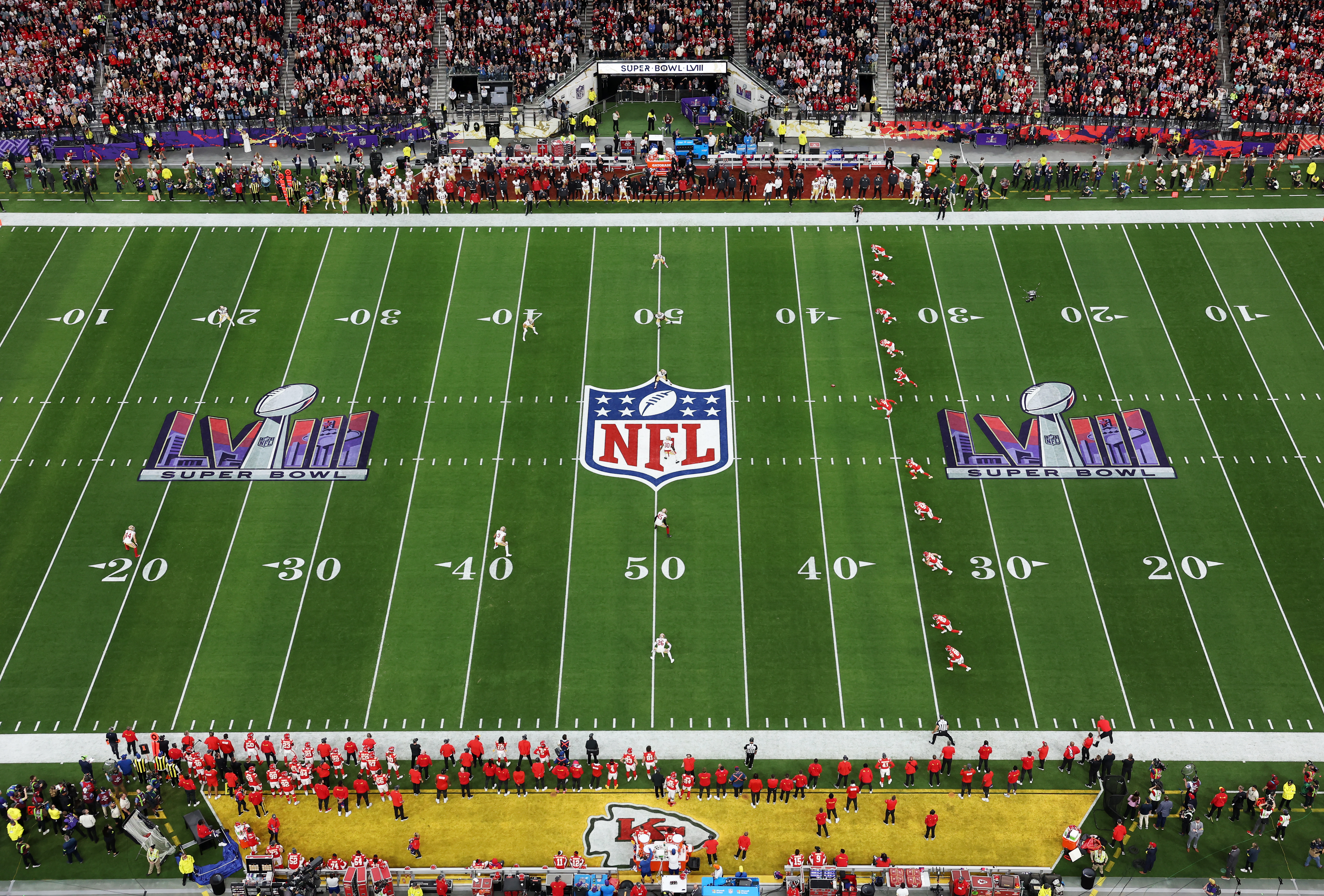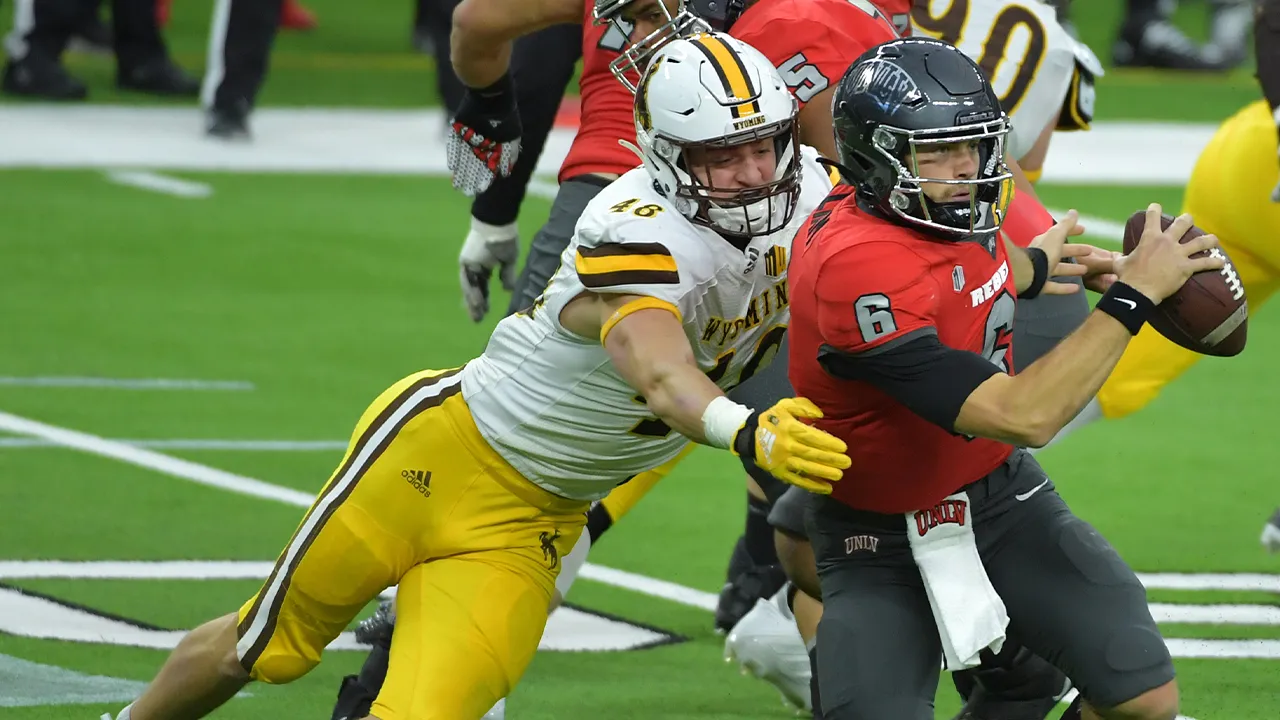Love everything that came with the competitive rise and thrill ride to the Cubs’ historic 2016 championship. Or hate everything that came with the Cubs’ slow roll to increasingly disappointing finishes since then.Either way, the nine-year run of Theo Epstein at the top of the Cubs’ front office might represent the most unforgettable decade in the history of one of the two oldest franchises in the majors.Epstein’s legacy as a two-time curse-busting executive in Boston (Bambino) and Chicago (Billy Goat) has secured a certain path to the Hall of Fame for the Lakeview resident.But the Chicago half of that top-boss career is a non-linear Cubs legacy that includes not only soaring successes but also sore spots for the club and, Epstein admits, even the sport.As longtime confidante and right-hand man Jed Hoyer takes over as Cubs president, the legacy of the Theo Epstein Era that he follows and in some cases will try to extend:
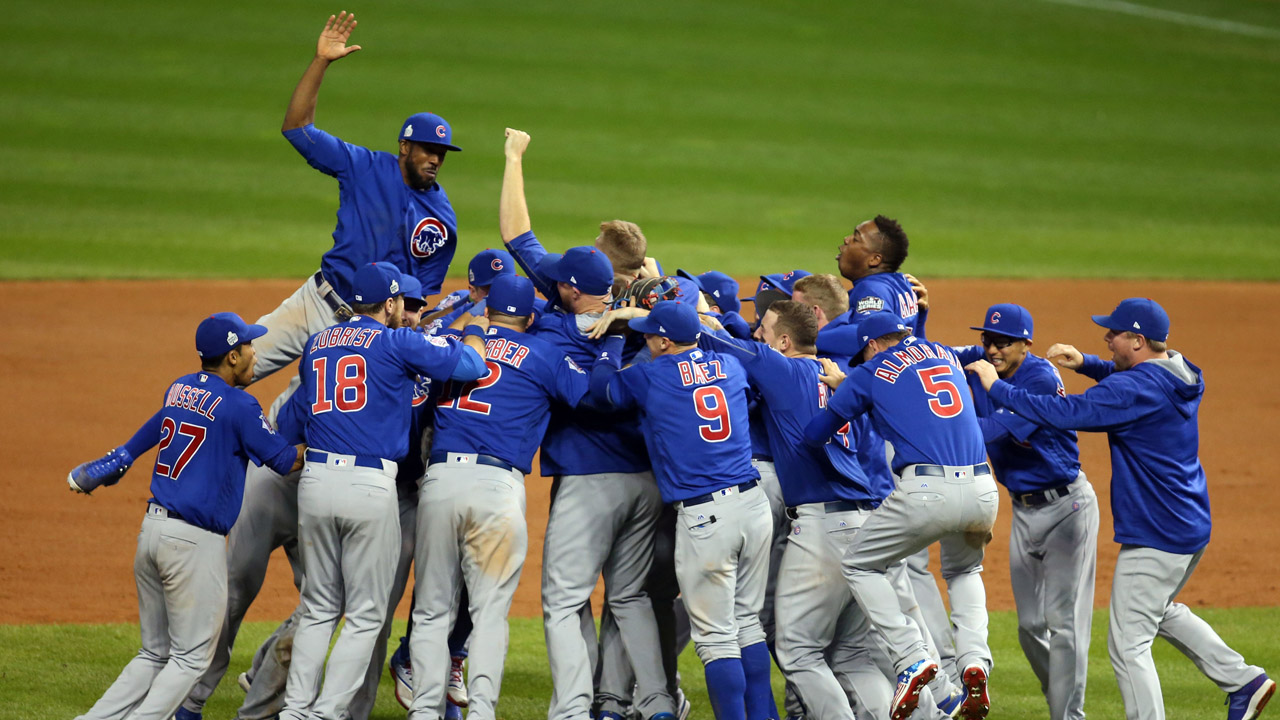
It wouldn’t have mattered how he did it, where he came from to pull it off or, to some extent, even when he did it during the last nine years.
But the fact that Theo and Co. pulled off the most elusive and ultimately celebrated championship in American team sports history after already busting Boston’s curse, facing competitive rules changes and financial constraints he didn’t anticipate as he took the job and won it in his fourth year?
That’s not just the stuff of Hall of Fames but also Hollywood. They oughta make a movie about it, with a big-name star like Brad Pitt or somebody.
Facing new limits on amateur spending with draconian penalties that went into effect the year he took the job and getting caught off guard by the severity of spending restrictions related to the Ricketts family’s highly leveraged purchase of the team, Epstein’s front office shifted to Plan B almost immediately upon walking in the door.
That kept them from more competitive bids for international free agents Yoenis Cespedes and Yu Darvish nine years ago and instead put the focus on trading off inherited veterans for prospects (such as Kyle Hendricks and Addison Russell), employing a sign-and-flip strategy with starting pitchers to create more trading opportunities (Scott Feldman for Jake Arrieta, Pedro Strop) and tanking to increase amateur spending allotments and draft position (hello, Kris Bryant).
Epstein even negotiated with the organization’s CFO to protect unused payroll to carry over into the following year — a practice typically reserved only for small-market teams. It allowed him to carry over much of the 2014 payroll budget set aside for their ultimately failed Masahiro Tanaka bid, creating enough room in the 2015 budget to sign Jon Lester.
He then leveraged the resulting turnaround on the field (and 2015 playoff revenues) to negotiate an increased budget for 2016 (hello, Ben Zobrist, Jason Heyward and John Lackey).
Talk about Moneyball.

On the other hand, the Cubs were the first big-market team in MLB history to intentionally tank full seasons to leverage a future competitive window. When that plan worked so well so quickly with the 2016 championship — followed by the Astros’ similar route to the 2017 title — the race to the bottom was on for everyone in baseball not strongly positioned to “win now.” (See: pre-2020 White Sox, et al.)
The commissioner still does not admit that MLB has a tanking problem, even as some team executives in recent years have talked openly about it and others, including union officials, have decried the competitive-integrity issues it raises (along with the de facto salary suppression it tends to create).
And if that tanking blueprint is the other side of Epstein’s legacy in the game?
“I don’t spend two seconds thinking about that,” Epstein told the Chicago Sun-Times in 2018.
To be fair, that’s MLB’s problem; not his, the Cubs’ nor any other team’s. He and other executives in the game are charged with seeking competitive edges within the rules by whatever means are available.
“Look, we took over the team and the organization in a certain condition, and we looked at what the different paths were,” Epstein said during that 2018 conversation. “If there was a better path we would have chosen it. If we had some more pieces in place and we could have done some things in free agency and some things in trade to compete sooner and allow us to stay in a competitive position for a longer period of time, then we could have done that.
“But given what was here I felt like it was clearly the best move. We were an individual team making decisions in our own best interest, and I think that’s what you see out there.”
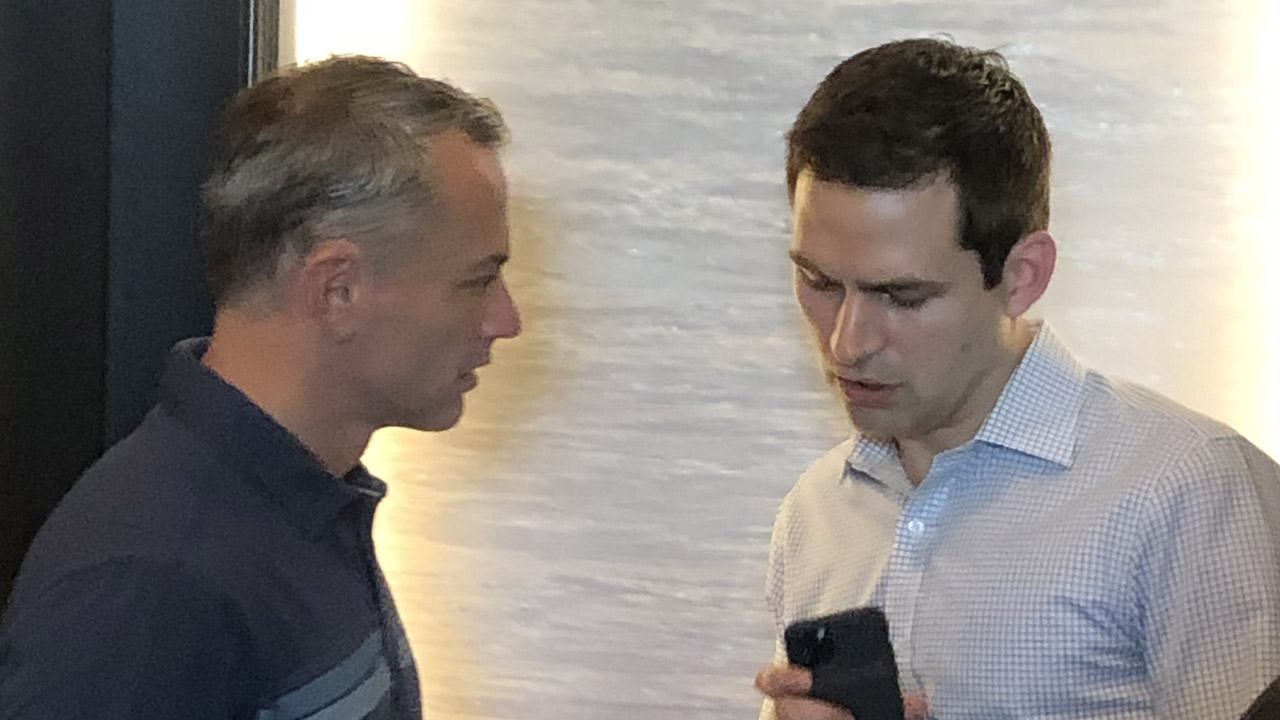
Whether Epstein returns to baseball or not, his impact on the game will be felt in front offices coast to coast for years to come.
Former Epstein front office assistants in team president or general manager roles in the majors right now include Red Sox GM Brian O’Halloran, Pirates GM Ben Cherington, Diamondbacks GM Mike Hazen, Giants GM Scott Harris and, perhaps most notably, Hoyer.
“It was like being part of a start-up,” Cherington told The Athletic’s Peter Gammons of those days in Boston’s front office as one of several 20-somethings working for 20-something Epstein. “We didn’t sleep, but we were empowered and driven by a love of the job, and we all knew that while we would make mistakes — and we made plenty — we were sheltered by Theo.”
Said Hoyer, who was part of that group: “I learned so much from Theo it’s hard to sit there and say one or two things. … I’ve seen him grow in the job and become more comfortable and grow as a manager and leader. I feel I’ve evolved as well. I look at his maturation and think that I want the same thing to happen to me: The longer you’re in the job and the more decisions you make, the more comfortable you get with [your] style.”

Epstein was among the first to integrate analytics and proprietary software into the scouting, player development and strategy processes of his teams — resulting, in part, in lineups full of hitters who saw lots of pitches, drew lots of walks (with decreasing concern over strikeouts), got into opponents’ bullpens quicker and consequently forced lots of pitching changes and slower moving games. Which forced others to adapt. Which resulted in more lineups that “grinded,” more attention to having quality relief for all parts of the game with the lead.
The evolution of this and subsequent hitting trends and power-pitching trends has led to a game that is increasingly difficult to watch for average fans, with more strikeouts, more walks, more home runs and, consequently, fewer balls in play than at any time in history.
"I take some responsibility for that because the executives like me who have spent a lot of time using analytics and other measures to try to optimize individual and team performance have unwittingly had a negative impact on the aesthetic value of the game and the entertainment value of the game in some respects,” Epstein said.
It’s something he suggested could be among the things he tries to help MLB solve in his next chapter in the game — wherever and whenever that might be written.
If he can help discover a way to naturally return the game to a better pace with more balls in play, that could be as career-defining as any of the three championships he oversaw.
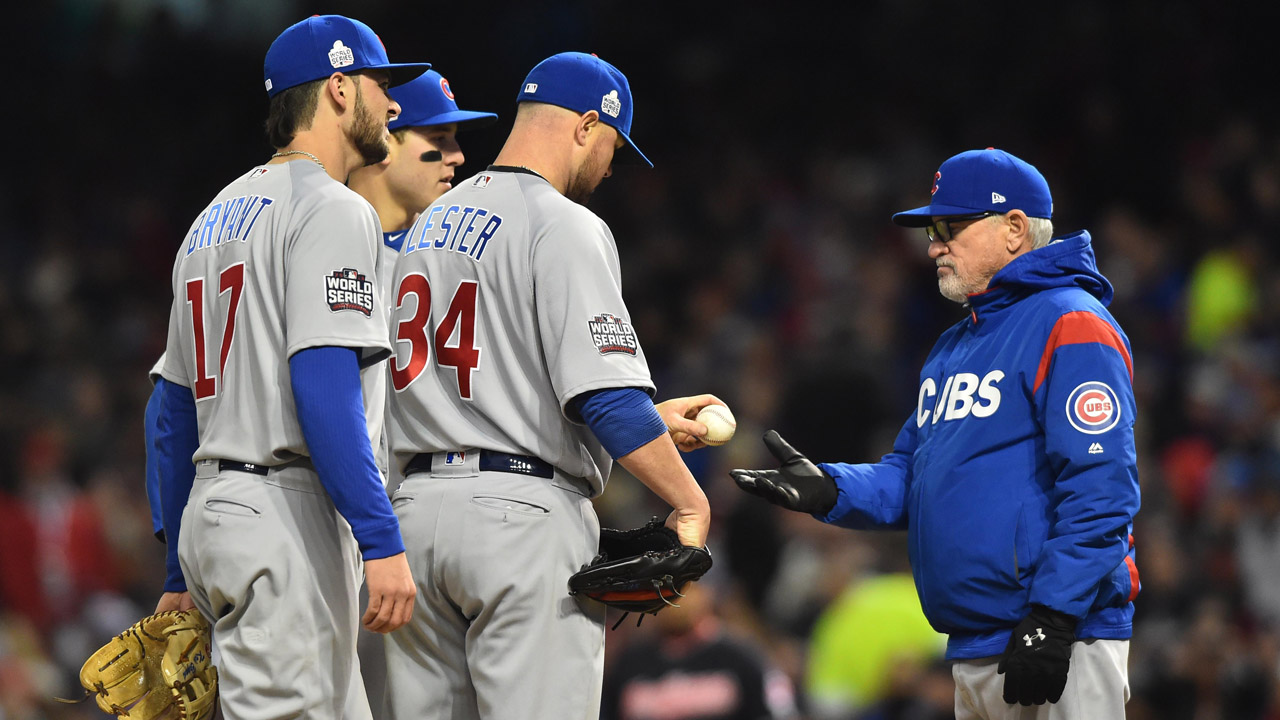
Most rebuilds that result in championships have an element or two that are especially impressive or impactful.
Epstein’s model included high-impact moves in every facet of acquisitions from the end of 2011 to the end of 2014 that, in turn, resulted in championship-level team performances in 2015 and 2016: the amateur draft (Kris Bryant, Kyle Schwarber), free agency (Jon Lester), trades (Jake Arrieta, Pedro Strop, Kyle Hendricks), the hiring of a manager (Joe Maddon) and even the Rule 5 draft (2015 playoff closer Hector Rondon).
It was the front office equivalent of somebody hitting .400 or DiMaggio’s 56-game hitting streak.
“If you look at the five-year rebuild, it was just about perfect. It was probably one of the best in history, if not the best,” Epstein said after the 2019 season. “And why? It wasn’t because it was a grand strategy or a new paradigm of how to run a baseball operation. It was because we performed at an extraordinarily high level. We hit on an incredible amount of deals and got impact players back in deals where we shouldn’t have.
“And we haven’t performed at that level since then.”
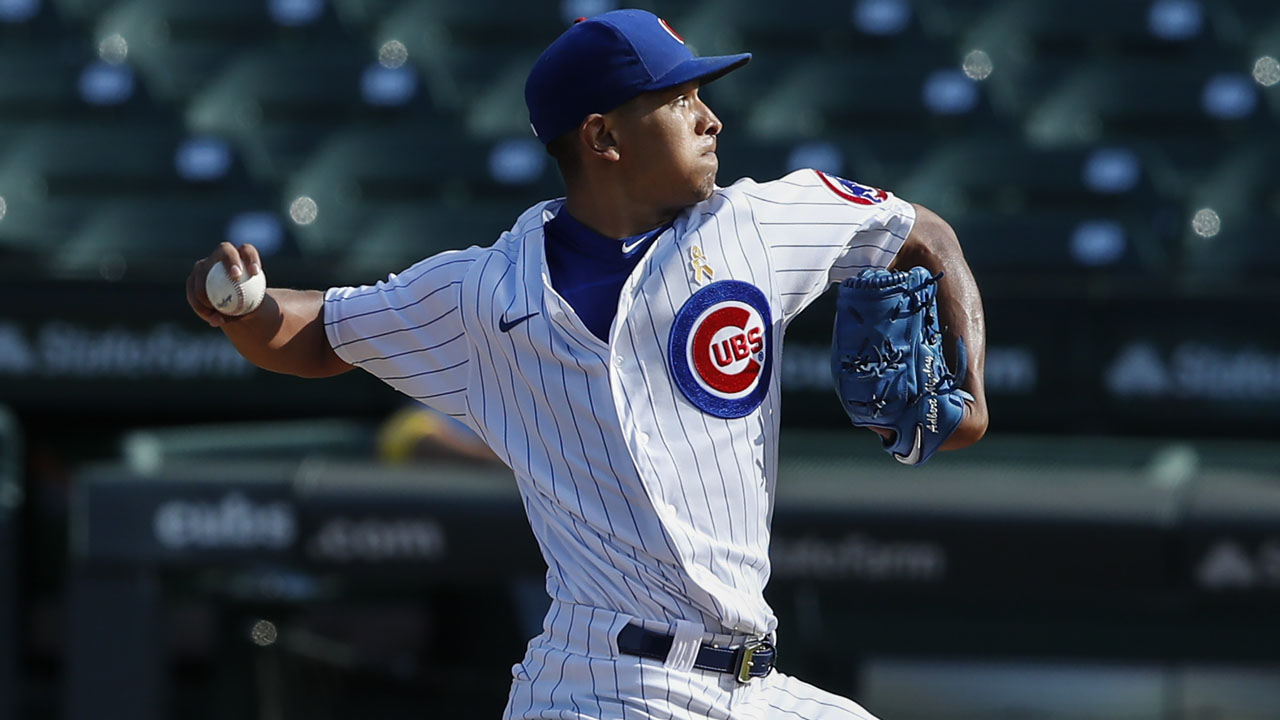
If there is an equal and opposite force to that almost-impossible run of successful acquisitions during Epstein’s Cubs tenure it’s the almost-impossible inability in nine years to produce a homegrown pitcher who has thrown even one postseason pitch or stuck on the big-league roster for even a full, six-month season.
It has been the biggest cause for their budget squeezing the last three years, creating the competitive need, for instance, to spend $138 million on pitching alone during a 2019 season in which they missed the playoffs — more than the entire rosters of the Orioles and Rays combined that year.
Even one third or fourth starter by 2017 or ’18, along with a couple of reliable relievers, might have made enough of a difference in roster flexibility that some of those hitting issues the last two or three years might have been addressed.
“That’s something that we’ve been rightly criticized for, and I promise we’ve beat ourselves up over it far more than we’ve been criticized for it,” Hoyer said. “That’s certainly something we need to improve.”
It’s on his watch now.
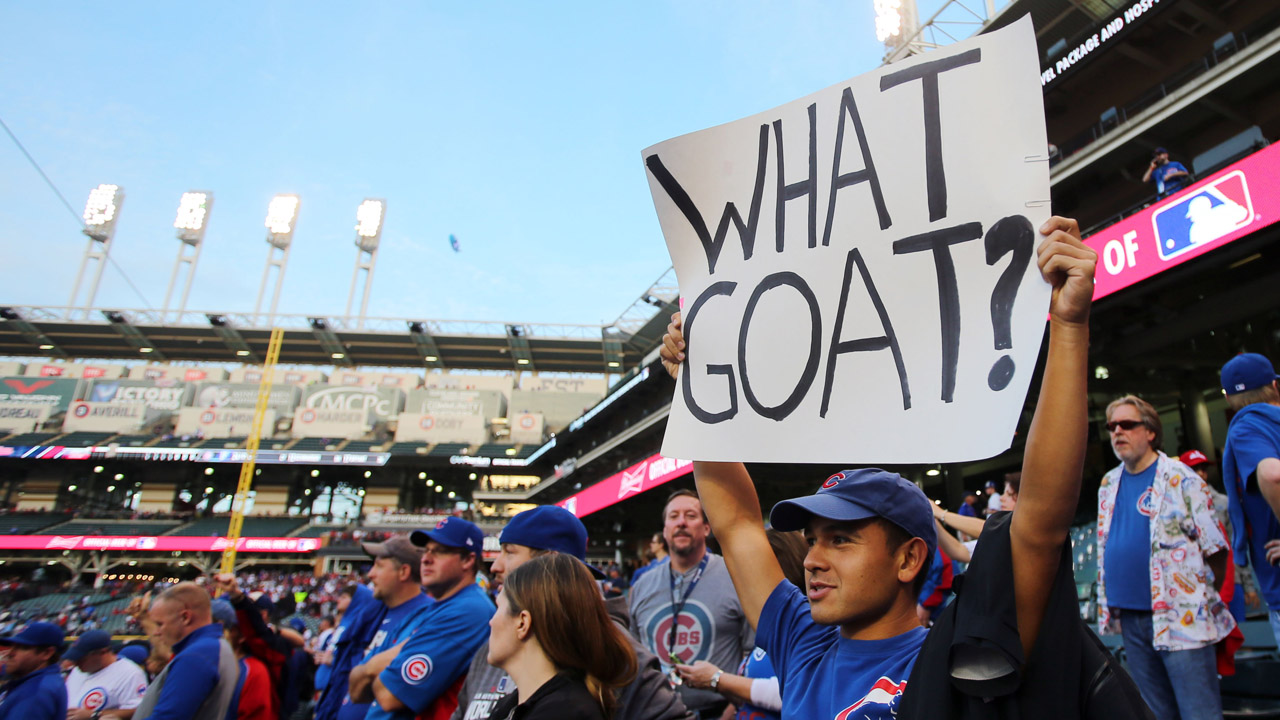
Whatever the final balance on the ledger of Epstein’s legacy in Chicago, this bottom line is indisputable: Expectations for this team have been raised for each season to a level not seen in perhaps a century — as evidenced by growing discontent of the fans over early October exits (and the 2019 playoff miss) the last three years.
“Culture” is one of the most debated and overused terms in sports, both in its definition and in the lasting power of its usually fleeting nature beyond a few rare franchises (the Yankees on one end of the spectrum, the Clippers and Browns on the other).
Go ahead, call it a change in culture if you want; the billy goat, after all, is gone.
But whatever you call it, that legacy of high expectations that Epstein leaves after these last six consecutive winning seasons might be the most challenging to replicate and extend — never mind to build on — for Hoyer or anyone else.

